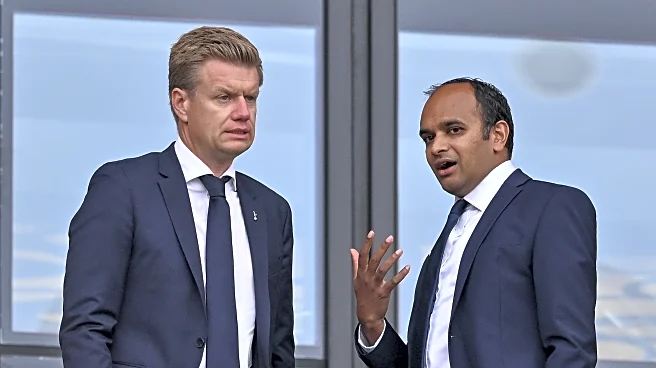What's Happening?
Germany has initiated a campaign to attract more voluntary military recruits as it seeks to strengthen its armed forces in response to fears of Russian aggression. Chancellor Friedrich Merz's coalition has approved a plan to enhance military recruitment without immediate conscription, aiming to increase the Bundeswehr's personnel from 181,000 to 260,000. The initiative includes improved pay and conditions for recruits, flexible service terms, and attractive training offers. The government plans to send questionnaires to 18-year-olds about their willingness to serve, with mandatory medical exams for men starting in 2027. The plan leaves open the possibility of reinstating compulsory service if voluntary recruitment falls short.
Why It's Important?
Germany's efforts to bolster its military are significant for European security, particularly in light of Russia's aggressive actions. As a leading NATO member, Germany's military strength is crucial for regional stability and deterrence. The recruitment drive reflects the country's strategic shift towards enhancing its defense capabilities, which has implications for its role in NATO and the EU. The initiative also highlights internal political dynamics, with debates over the necessity of conscription versus voluntary service. The outcome of this recruitment drive will influence Germany's defense posture and its ability to respond to potential threats.
What's Next?
The recruitment plan requires parliamentary approval and will be closely monitored by defense stakeholders. The government aims to achieve its recruitment targets through voluntary measures, but if these fall short, compulsory service may be considered. The initiative has sparked discussions within the governing coalition, with some members advocating for a return to conscription. The plan's success will depend on its ability to attract sufficient recruits and address logistical challenges, such as the availability of barracks and trainers. Germany's defense strategy will continue to evolve in response to geopolitical developments and security needs.










